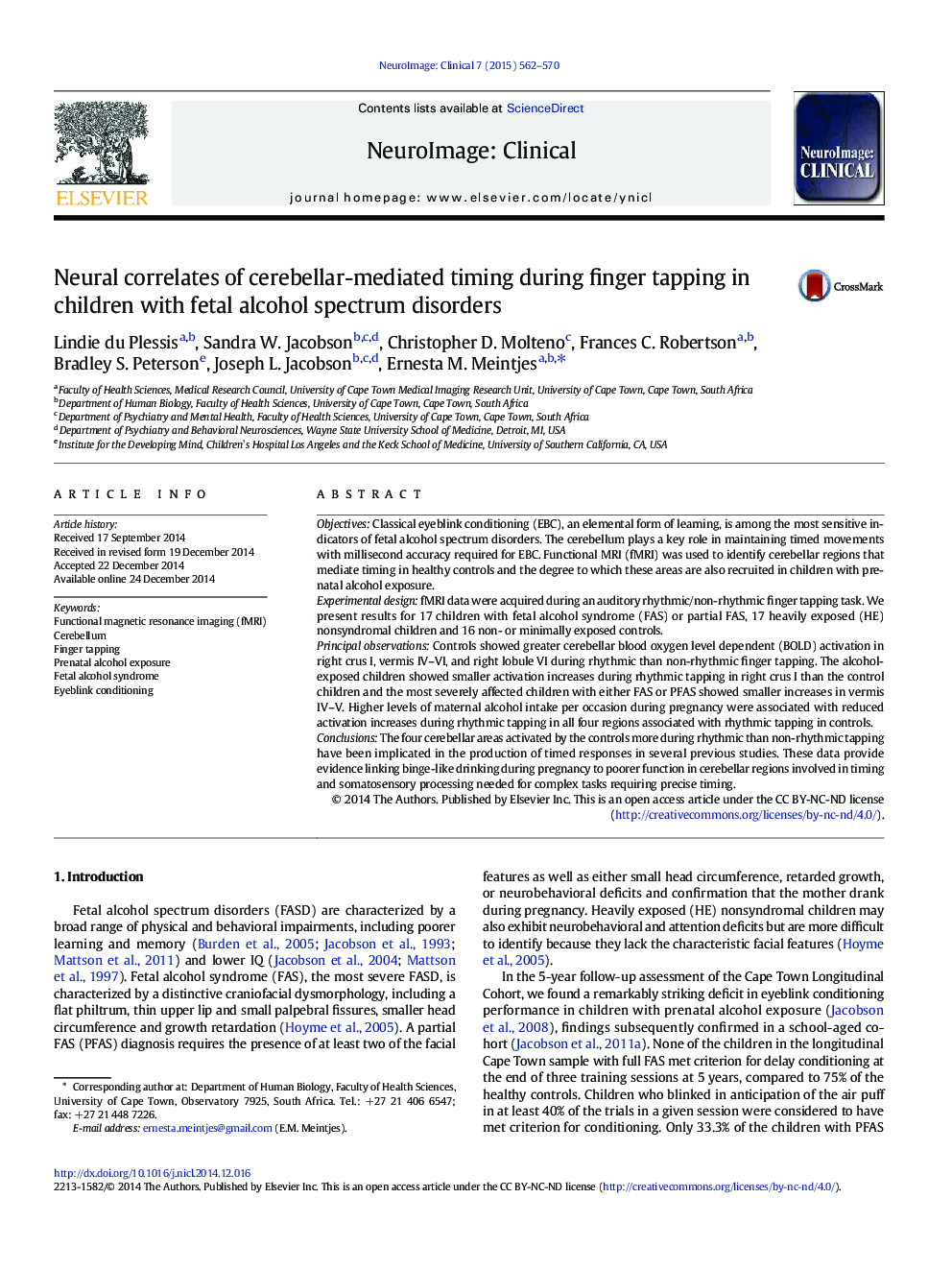| کد مقاله | کد نشریه | سال انتشار | مقاله انگلیسی | نسخه تمام متن |
|---|---|---|---|---|
| 3075110 | 1580960 | 2015 | 9 صفحه PDF | دانلود رایگان |
• Identified 4 cerebellar regions activated more during rhythmic tapping in controls
• These regions are right crus I, vermis IV–V, vermis VI and right lobule VI
• Fetal alcohol exposed children activated right crus I less than control children
• Children with FAS and PFAS activated vermis IV–V less than the other children
• Activity in all 4 regions is reduced with higher levels of alcohol exposure
ObjectivesClassical eyeblink conditioning (EBC), an elemental form of learning, is among the most sensitive indicators of fetal alcohol spectrum disorders. The cerebellum plays a key role in maintaining timed movements with millisecond accuracy required for EBC. Functional MRI (fMRI) was used to identify cerebellar regions that mediate timing in healthy controls and the degree to which these areas are also recruited in children with prenatal alcohol exposure.Experimental designfMRI data were acquired during an auditory rhythmic/non-rhythmic finger tapping task. We present results for 17 children with fetal alcohol syndrome (FAS) or partial FAS, 17 heavily exposed (HE) nonsyndromal children and 16 non- or minimally exposed controls.Principal observationsControls showed greater cerebellar blood oxygen level dependent (BOLD) activation in right crus I, vermis IV–VI, and right lobule VI during rhythmic than non-rhythmic finger tapping. The alcohol-exposed children showed smaller activation increases during rhythmic tapping in right crus I than the control children and the most severely affected children with either FAS or PFAS showed smaller increases in vermis IV–V. Higher levels of maternal alcohol intake per occasion during pregnancy were associated with reduced activation increases during rhythmic tapping in all four regions associated with rhythmic tapping in controls.ConclusionsThe four cerebellar areas activated by the controls more during rhythmic than non-rhythmic tapping have been implicated in the production of timed responses in several previous studies. These data provide evidence linking binge-like drinking during pregnancy to poorer function in cerebellar regions involved in timing and somatosensory processing needed for complex tasks requiring precise timing.
Journal: NeuroImage: Clinical - Volume 7, 2015, Pages 562–570
